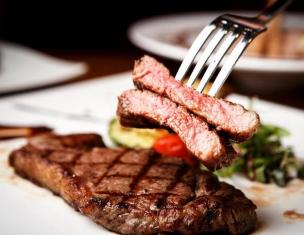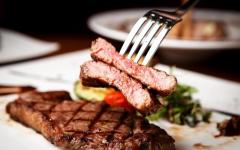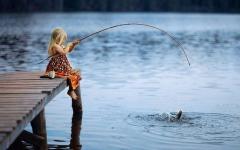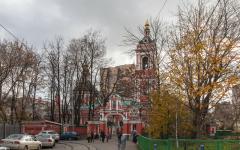Home News Around the world More details
24.04.2017 (18:36)
The Minister of Defense took part in a meeting of the Board of Trustees of the Russian Geographical Society
Today a meeting of the Board of Trustees of the Russian Geographical Society (RGS) was held in St. Petersburg. The Minister of Defense, Army General Sergei Shoigu, who is the president of this All-Russian public organization, took part in its work.
The meeting was opened by Russian President Vladimir Putin, who proposed establishing a professional holiday - Geographer's Day, as well as the honorary title "Honored Geographer of the Russian Federation". According to the head of state, this step will emphasize the importance of the profession and increase the status of representatives of science, and will contribute to the popularization of geography.
Vladimir Putin noted the importance of international projects of the Russian Geographical Society, especially joint ones with partners from China. “RGS projects with the participation of foreign partners once again prove: the interaction of scientists is not subject to political conjuncture and contributes to scientific progress and strengthening friendship,” he emphasized.
In turn, Sergei Shoigu said that the works of participants in the photo competition of the Russian Geographical Society “The Most beautiful country» will be able to be seen by residents of more than one and a half dozen countries.
Currently, exhibitions are open in Nice, France, and in four cities in Romania, and in May the second exhibition will start in Serbia, where a foreign center of the Russian Geographical Society has even been created.
“I would like to emphasize that he received support from the very high level: the center was opened by the President of Serbia, and the Board of Trustees included leading public figures and entrepreneurs of the republic,” noted the Minister of Defense.
“There are many plans for the center interesting projects. Including the organization of new platforms for conducting geographical dictation. In addition to Serbia, we plan to prepare such sites in the CIS countries and on the basis of foreign centers of Rossotrudnichestvo,” said Sergei Shoigu.
Speaking about plans for 2017, he especially highlighted the project to form a powerful scientific, industrial and economic center in Siberia.
“We believe that its creation will provide real assistance to the comprehensive development of the region,” Sergei Shoigu emphasized.
He explained that the attention to Siberia is not accidental.
“Her study is a significant part of the history of the Russian Geographical Society. In fact, we will continue the traditions of the Great Siberian Expedition of the Society and the work of Grum-Grzhimailo, Chersky and Obruchev, as well as an honorary member of the Russian Geographical Society, the famous governor of Eastern Siberia, Nikolai Muravyov-Amursky, who personally examined the strategically important transport infrastructure of the region, rafting along its rivers,” said the president of the Russian Geographical Society.
Sergei Shoigu called preservation one of the key areas of activity of the Russian Geographical Society rare species animals. An important place in this work is occupied by the study marine mammals, in particular whales.
The President of the Russian Geographical Society recalled that 2017 in Russia is dedicated to ecology, and proposed discussing a number of topics in this regard.
One of them concerned the study and conservation of soils.
“Soils are a very complex and interesting a natural phenomenon, which makes it an important object for geographical study. The environmental well-being of the country and, to some extent, its economic success largely depend on the condition of the soil. Our scientists have their own arguments and proposals. I know that this topic was of interest to some trustees,” noted Sergei Shoigu.
“We touched on the topic of studying whales. But, as you know, our seas are home to thousands of flora and fauna, many of which are unique. This is especially true for the seas of the Russian Arctic. Last year we gave specialists the opportunity to conduct extensive research in the White Sea. There are results,” said the president of the Russian Geographical Society.
He raised another topic related to ecology. We were talking about Lake Baikal. Dozens of rivers flow into it, which in one way or another affect the ecological state of the reservoir.
Since 2011, the Russian Geographical Society has supported a project to study the largest of them - the Selenga River?.
Sergei Shoigu also noted that the Russian Geographical Society pays a lot of attention to issues of education, and, above all, the younger generation.
“For example, we are actively developing a network of youth clubs in the Russian Geographical Society. Such clubs want to create universities, centers for children's tourism and local history, and, of course, our regional branches. Now there are more than a hundred of them in 76 regions of the country. At the same time, we receive dozens of new applications every month,” explained Sergei Shoigu.
According to the president of the Russian Geographical Society, the clubs' programs are very rich - from scientific discussions to category trips. A number of competitions have also been organized, the winners of which will become participants in archaeological excavations in Crimea and Southern Siberia, visit unique reserves, and will be able to sail along the rivers and seas of Russia on a real research vessel, the president of the Russian Geographical Society said.
“I hope that the volunteers who have gained experience working in the floating universities of the Russian Geographical Society will be part of a large expedition to Antarctica, which we plan to coincide with the anniversary of the discovery of the sixth continent,” concluded Sergei Shoigu.
The Russian Geographical Society was founded in 1845 by decree of Emperor Nicholas I. Currently, the All-Russian public organization The Russian Geographical Society has 85 regional branches throughout Russia, the largest of which are Primorsky and Moscow. In 2009, Sergei Shoigu was elected president of the society.
In 2010, the Board of Trustees of the Russian Geographical Society was created, headed by Russian President Vladimir Putin.
Russian President Vladimir Putin chaired a meeting of the Board of Trustees of the Russian Geographical Society. The Kremlin press service reports this.
During the meeting, the results of the organization’s activities over the past year and the most striking projects of 2017 were discussed. The meeting was attended by members of the trustee, media and management boards of the society, as well as leading scientists.
According to the president, “in last years The Russian Geographical Society not only expanded the boundaries of its activities, it became a prominent participant in the public life of our country, the author important initiatives, including in such areas as education.”
“Along with the history of the Fatherland, the Russian language, and literature, geography serves as the basis for the formation of patriotic values, cultural, national identity and self-awareness,” Putin said.
The head of state noted that due to the fact that young people do not know enough about the geography of not only Russia, but sometimes even their own region, territory, republic, such provisions of the concept as the inclusion of the lesson “Geography of the native land” in the course for grades 8-9 are especially relevant and the return of geography to all grades of middle and high school, with no less than two hours a week from 6th to 10th grades.
However, geography today is in demand by society, and interest in it is growing. This interest, according to Putin, must be maintained, including the tasks of popularizing Russian geography in patriotic education programs at all levels.
The President expressed confidence that the Russian Geographical Society will continue active work in this area.
“The projects of the Russian Geographical Society with the participation of foreign partners once again prove that the interaction of scientists is not subject to political conjuncture and contributes not only to scientific progress, but also to the strengthening of friendship. And, what is especially important, it establishes good relations for the future among younger generations,” Putin emphasized.
The head of state noted that “geographers, researchers, and travelers have at all times made a huge contribution to strengthening humanitarian ties. And, of course, their services to their native country, to Russia, are invaluable. At the same time, it so happened that they still don’t have their own professional holiday.”
“I think you will agree with me, this could be corrected, Geographer’s Day could be added to the Russian calendar of significant dates. And also to supplement the list of honorary titles of the country with the title “Honored Geographer” Russian Federation" This will emphasize the importance of the profession and increase the status of representatives of geographical science. And most importantly, it will contribute to the popularization of geography itself, involving even more people in the study of their native country, its nature and history,” concluded the president of the country.
The President also spoke today about the need to maintain interest in geography. Vladimir Putin took part in a meeting of the board of trustees of the Russian Geographical Society. The head of state noted that this science is no less important than the Russian language, literature and history for the formation of patriotism and national identity.
Russian schoolchildren know where the Grand Canyon is, but have difficulty finding the Barguzinsky Nature Reserve on a map of Russia. The president presented such data at a meeting of the board of trustees of the Russian Geographical Society. The All-Russian Geographical Dictation, in which 180 thousand people took part last year, showed that knowledge of geography is at an acceptable level only among those who graduated from school in the 60s and 70s. But then the hours of teaching the subject were gradually cut, which led to such disappointing results.
“The geographical knowledge of students and young professionals is also imperfect,” the president noted. - One of the reasons is that geography is no longer required for admission to such specialties as international relations, land management and cadastre, regional studies and even tourism. Agree, it is difficult to imagine a competent international specialist or manager of the tourism industry who is “deeply ignorant” of geography.”
The President emphasized: universities need to draw appropriate conclusions and create special educational centers in geography for talented schoolchildren. In the Russian Geographical Society, for example, this practice has been used for a long time. There are already 76 children's educational centers and regional branches of the organization operating in Russia. Moreover, such ones are being created abroad. For example, in Serbia.
“In addition to Serbia, we plan to prepare such sites in the CIS countries and on the basis of foreign centers of Rossotrudnichestvo. Thus, starting this year, we will have the opportunity to compare who knows the geography of Russia better: our citizens, foreigners or compatriots living abroad,” said S. Shoigu.
The fact that Russia is still far from being fully studied is confirmed by many projects of the Russian Geographical Society. The deep seas of the Arctic - the White, Barents, and Okhotsk - are still a mystery to scientists. Biologists from Moscow State University told the president about the new discoveries.
“Few people know that in our seas, for example, in the White Sea, the largest jellyfish in the world is found. This is a jellyfish whose tentacles reach 36 meters, the height of a 12-story building. And this is just one of the animals that we managed to find and film,” said the head of the diving service of the Belomorsk biological station Lomonosov Moscow State University Alexander Semenov.
“Beautiful shots of jellyfish. As I understand it, one jellyfish eats another?” Putin asks.
“Yes, these jellyfish feed on other jellyfish, 70% of the diet,” answered Alexander Semenov.
“What about the second picture? Where is the angel clam, is it eating the devil?” the president asked.
“Yes, angelfish eat monkfish. Good conquers evil,” answered Alexander Semenov.
“What I am doing, I will need to take a closer look at your work results. We have to watch all the time so that no one eats us, look around. It’s very useful to see what’s happening in nature,” Putin said.
They also told the president about the Russian Geographical Society's expedition to Lake Baikal and about measures to preserve large mammals in the world's oceans. They also presented a new competition for guides and tour guides, in which anyone can take part. It is enough to make a two-minute video about native land, where you can tell about the history and culture of Russia in a bright and original way. Russia, about which even its inhabitants still know very little.
“Geography is a reason for us to talk about Russia, about the country, its wealth, prospects, development, colossal potential, both historical and natural. I would like to express the hope that you and I will continue this joint work, and wish us all success in this noble field. Thanks a lot!" - said Vladimir Putin.
On April 27, 2018, a meeting of the Society’s Board of Trustees was held at the Headquarters of the Russian Geographical Society in St. Petersburg.
Chairman of the Board of Trustees Vladimir Putin, President of the Russian Geographical Society Sergei Shoigu, members of the Board of Trustees of the Society and honored guests took part in its work.
The meeting participants summed up the organization’s work for 2017 and presented best projects current year.
Vladimir Putin addressed the meeting participants with a welcoming speech:
“We have gathered again at the historic Headquarters of the Russian Geographical Society. This magnificent building is almost 110 years old. And all these years it has faithfully served the cause of education, conservation of nature, development of education, culture, science and local history. It is gratifying that these traditions continue today. Here, as before, passionate people gather here, determined to do specific work, and bright, in-demand projects in a wide variety of fields are born. I would like to thank everyone who helps in implementing the initiatives of the Russian Geographical Society.”
Vladimir Putin also noted: “...The Concept developed by the Russian Geographical Society deserves special words geographical education. Experts and teachers have been talking about its necessity for many years, now it is completely ready, and I expect that it will be approved by the Ministry of Education and Science in the very near future. I also consider the Russian Geographical Society’s initiative to name new streets in Russian cities after our great geographers and travelers important.
...The sphere of toponymy, that is, the names of geographical and other objects, generally requires special attention. Today we are faced with a situation where Russian names, which were given by our researchers and travelers in past centuries and decades, are gradually being forced out of the world map. Let me emphasize that in this way the memory of Russia’s contribution to the study of the planet and to the development of science is erased. This is especially noticeable in Antarctica, where the names given by the discoverers of the continent, Lazarev and Bellingshausen, have almost gone out of circulation.
... All this became possible, among other things, due to the lack of modern domestic maps. Only foreign ones are freely available, where, as a rule, secondary names of geographical objects appear. In this regard, naturally, with the most active participation of the Russian Geographical Society, it is proposed to prepare a new Russian atlas of the world, in which all such cases will be correctly interpreted... I ask you to start creating the Rosreestr atlas together with experts from the Russian Geographical Society and with the participation of the Ministry of Defense, which, within the framework of all necessary procedures, should ensure the availability of its cartographic materials for the compilers of the atlas and in general for travelers, tourists, car enthusiasts, including in the format of modern computer technologies working online.
Our task is to preserve what was done by our predecessors, and, of course, to write new names and new bright events into the annals of the Russian Geographical Society. Taking this opportunity, I announce the start of a competition for the now traditional, third prize of the Russian Geographical Society.”
President of the Russian Geographical Society Sergei Shoigu summed up the work of the past year, spoke about current activities and plans for 2018. He spoke about the publication of new atlases by the Russian Geographical Society. In 2018, on behalf of the President of Russia, the following were published: the National Atlas of the Arctic - a unique publication of global importance, which has no analogues today, the Ecological Atlas of Russia, as well as the Atlas of Nature Reserves - a gift for the 100th anniversary of our country’s reserve system.
On April 24, 2017, a meeting of the Board of Trustees of the Russian Geographical Society was held at the Headquarters of the Russian Geographical Society in St. Petersburg.
Chairman of the Board of Trustees Vladimir Putin, President of the Russian Geographical Society Sergei Shoigu, members of the Society's Board of Trustees and honored guests.
The Board of Trustees of the Russian Geographical Society was created in 2010. He revived the long-standing traditions of philanthropy and established the Society's grants, within the framework of which many significant research, environmental and expedition projects are being carried out. The Council includes well-known public figures and business representatives. At a meeting of the Board of Trustees, the results of the work done by the Russian Geographical Society are summed up, plans for the future are discussed, and awards are presented.
As Vladimir Putin noted, in recent years the Russian Geographical Society has not only expanded the boundaries of its activities, but has also become a prominent participant in the country’s public life, the author of important initiatives, including in the field of education.
“Along with the history of the Fatherland, the Russian language, literature, geography serves as the basis for the formation of patriotic values, cultural, national identity and self-awareness,” said Vladimir Vladimirovich.
The Chairman of the Board of Trustees of the Russian Geographical Society also drew the attention of the meeting participants to the fact that Russian geographers still do not have their own professional holiday:
– Geographers, researchers, travelers have at all times made a huge contribution to strengthening humanitarian ties, and, of course, their services to their native country, to Russia, are invaluable. Moreover, it so happened that they still do not have their own professional holiday. “I think you will agree with me, this could be corrected - the Geographer’s Day could be added to the Russian calendar of significant dates,” Vladimir Putin suggested. – And also to supplement the list of honorary titles of the country with the title “Honored Geographer of the Russian Federation.” This will emphasize the importance of the profession and increase the status of representatives of geographical science,” he noted.
At the Council meeting, awards of the Russian Geographical Society were presented.
– This year we are recognizing trustees who have made special contributions to the Russian Geographical Society. Thanks to their help, we were able to implement hundreds of educational, educational and media projects,” noted Sergei Shoigu.
The highest award of the Russian Geographical Society - the Constantine Medal - was awarded to Alisher Burkhanovich Usmanov. Due to good reason, he was unable to attend the event, so the medal will be awarded to him at a later date.
Alexander Grigorievich Abramov, Andrei Removich Bokarev, Alexander Valerievich Dyukov became winners of the Big Silver Medal.
Yuri Leonidovich Vorobyov was awarded the Small Silver Medal of the Russian Geographical Society.
Sergey Kuzhugetovich also spoke about changes in the composition of the Board of Trustees of the Russian Geographical Society:
– I welcome those who have joined our ranks: Oleg Valentinovich Belozerov, German Oskarovich Gref, Andrei Leonidovich Kostin, Vladimir Stefanovich Litvinenko and Nikolai Petrovich Tokarev. Also included in the Board of Trustees are Anton Eduardovich Vaino and Igor Ivanovich Sechin.
Then the President of the Russian Geographical Society summed up the work of the past year, spoke about current activities and plans for 2017, involving scientists and project managers of the Russian Geographical Society in his speech.
This year the event was held in a round table format: the trustees discussed information heard from the speakers, and also came up with new initiatives.
img_7533.jpg
Thus, Frederik Paulsen shared the details of the round-the-world Antarctic expedition, within the framework of which the “floating university of the Russian Geographical Society” was organized, and proposed organizing several more similar projects.
Viktor Vekselberg spoke about new expedition Fedor Konyukhov, during which it is planned to make a non-stop flight around the globe in 120 hours, using new Russian technologies.
Petr Aven presented a project for restoring the family estate of the Russian explorer Yuri Lisyansky, a comrade-in-arms of Ivan Kruzenshtern, who made the first Russian round-the-world expedition on the sloops "Neva" and "Nadezhda". Aven also donated to the Russian Geographical Society the “Map of the Globe,” published at the beginning of the 19th century, and books by Yu.F. Lisyansky in Russian and English.
Concluding the meeting, Chairman of the Board of Trustees of the Russian Geographical Society Vladimir Putin emphasized:
– I would like to thank you once again, dear members of the Board of Trustees and the Media Council, for the great support that you provide to the programs, expeditions, research of the Russian Geographical Society, and to everyone who participates in its useful and creative work.








